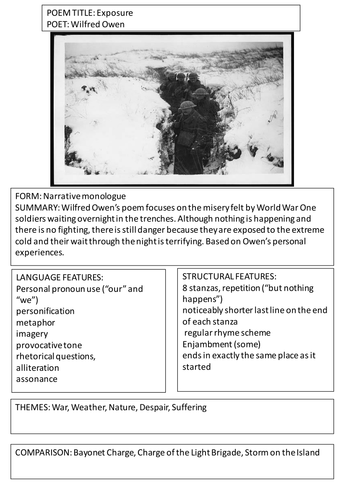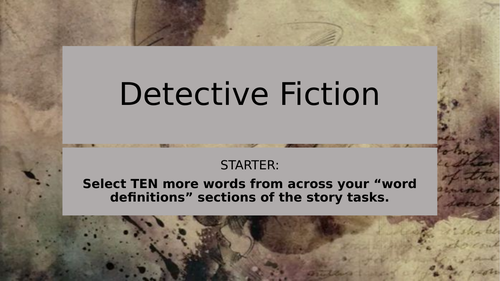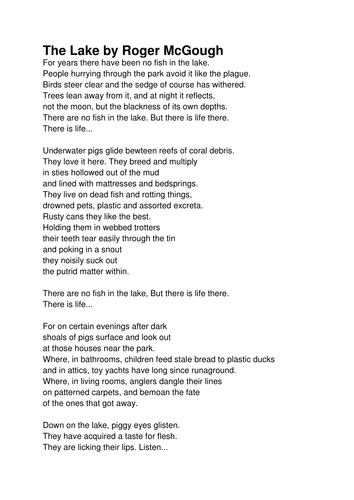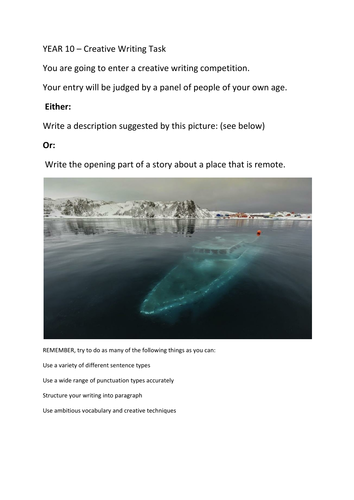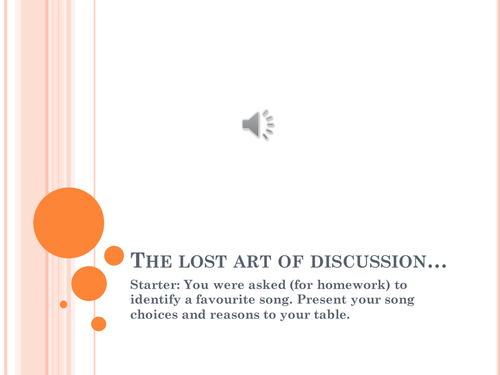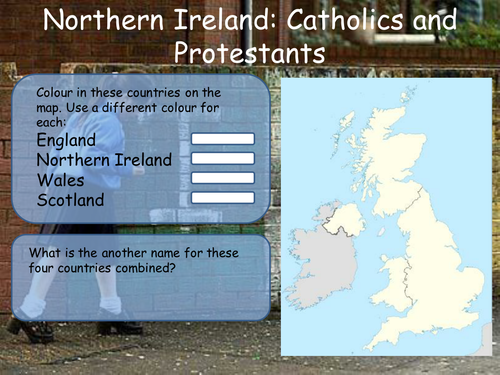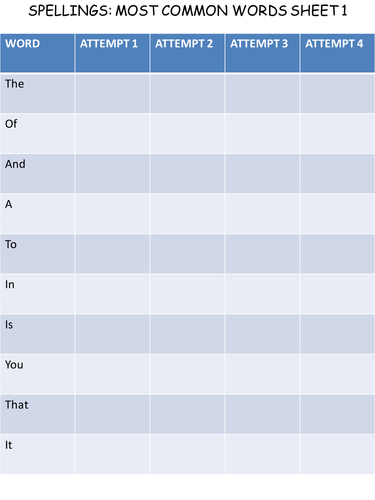
229Uploads
582k+Views
1424k+Downloads
All resources

AQA Power and Conflict Poetry Revision Cards
A series of revision cards designed for students to use independently to aid with the revision process. I will add to these as I go.

KS3: Detective Fiction - Sherlock Holmes. Workbook included. Reading and Writing SoW.
A thoroughly enjoyable unit of work. Built around a work booklet and designed for that awkward half-term at the end of the year where you don’t want to give out new exercise books.
The workbook contains a copy of The Norwood Builder, comprehension questions and vocabulary list, as well as a variety of activities that focus (primarily) upon creative writing skills with some language and structure based tasks.
The lessons are designed to be used with the workbook.
NOTE: I may upload a slightly different workbook in the future, but I will leave the original on here.

Quick Lesson POETRY - Roger McGough "The Lake"
Need a quick lesson? Look no further. A whole lesson based around Roger McGough's "The Lake" - I know it can be found online elsewhere, but I include it here for convenience's sake. Perfect for when you need to fill that irritating cover lesson with something meaningful.

D6 Dungeons and Dragons: The Dark Forest (An Easter Mission Pack)
PREMISE: You’ve been summoned to the gates of the Dark Forest – a haunted woodland, home to numerous fell creatures and twisted forms. The forest shifts and twists constantly, making it impossible to map. However, you and your adventuring kin will step into this shadowy land as the fate of Easter rests upon your shoulders. The Easter Bunny has been possessed! You’re job is to find him and drive out the demon. It’s a tough job, but someone has to do it…
Ok, so I kind of got carried away the whole Dungeons and Dragons thing and went and made myself an Easter Mission Pack. Also, as I had such success using my Christmas one, it felt like the right thing to do.
I include a lot of literary characters and locations in this one too.Here's the full list:
Hagrid
Aragog
Voldemort
Dracula
Frankenstein's Monster
Willow (from Buffy)
Treebeard
The Watcher in the Water (From Lord of The Rings)
The Balrog
The Wall (from Game of Thrones)
The Ringwraiths
It all seems to fit together.
Also, I include in this pack a whole-class presentation so you can do a guided creative writing lesson with a class or a large group. Either way, I am really looking forward to teaching this.
You will need to encourage all Dungeon Masters to be creative in how they manage the conflict situations.
This, is going to be great fun to teach...
PS - with the whole class presentation, clicking the main background image acts as the link to the next slide via the "secret paths" without flagging it up to students.
PPS - I've also included the first lesson - available for free elsewhere - otherwise it gets a bit complicated.

AQA Power and Conflict Poetry Scheme of Work
One power point per poem and some associated skills. I teach the poems in the order in which they appear in the anthology (except Tissue; I put that one at the end).
I follow a pattern with the lessons and source the contextual information from the BBC Bitesize website (and a couple of other places when I get bored of them) - it makes sense as any student that misses out on something can go and find what they need relatively quickly. The material is readily available elsewhere, hence the relatively low price for so many lessons.
NOTE: I have upgraded these lessons now. I’ve moved away from endorsing the PEEL style responses - the exam reports indicate clearly this is the thing to do. Additionally, I have included much more of a focus on the POWER themes. Lastly, I have used these poems as a springboard to discuss gender issues - part of this is my attempt to narrow the gender gap at the top end of GCSE English achievement by trying to get the lads to be more engaged with the material.
These lessons are designed to work in tandem with my own version of the poetry anthology. At the moment, I have yet to upload the edited version but I shall do so soon. That being said, the power points wouldn’t take much editing to use them with the traditional AQA version. All of the original lessons are included just in case you are still using the PEEL method of building a response.

AQA English Language Data Collation Spreadsheet aka "The Machine"
Attached is a spreadsheet that does an awful lot of work for you. To summarise, it does the following:
Allows for easy collation of GCSE Language marks on a paper by paper basis AND as a whole examination
Allows for easy identification of various student demagraphics - EAL, PP and so on
Allows you to measure progress against students best, average and last marks across both papers
Works out "how many marks" until you hit target grades for individual students
Colour codes grades and marks to allow for at a glance progress checks
Once you buy this spreadsheet, you will not need to get another LANGUAGE spreadsheet. The document contains instructions on the ARRAY tab as to how to update .
Oh, and if you do get this, I suggest you LOCK the individual spreadsheets ASAP: the document is set up to allow you to do this and still enter the data, you just won't be able to accidentally delete any of the coding, thus removing any brain overloads that might ensue.
I am using this at my current school and there are several other schools who are using this system with good reports.
Happy spread-sheeting!
PS - Yes, there is a page that reads exactly the same but for a version that caters for the AQA Literature course. The spreadsheets are different. Here's the link/address to the LITERATURE version:
/teaching-resource/aqa-english-literature-data-collation-spreadsheet-aka-the-machine-11405407

Year 9 Preparation for GCSE Scheme of Work: Writing from around the world
A resource dump for my first attempt at preparing a middle set year 9 class for the rigours of the new GCSE - some success, but the class dynamic was more of a problem than the lesson resources themselves. Some editing may be required, but if you are wondering about how to approach the Section B parts of the exams, this covers a lot of bases.

KS3: SPaG Understanding a Text Lessons (Using Michael Grant's "Gone" series as a stimulus)
SPAG lessons can get a little flat at times. These are the worksheets I’ve designed to use with my own SPAG group. It is designed to be taught in tandem with a Dystopian Fiction SoW that ends with a reading assessment. Specifically, these lessons focus on an extract taken from Michael Grant’s “Gone” - all extracts taken from the first chapter. The aim is to develop an increased understanding of each text through the asking of more and more complex questions. The tasks can be sat as part of a lesson (I reckon they’ll take most groups between 10-30 minutes depending on the groups setting), or make ideal homework and/or extension tasks.
At the moment, the resources are set up to be taught to lower set year 7 students. But, it won’t be too hard to change the tasks to more suitable ones for any set.
UPDATE: I’ve included some versions that are more suited to be printed out. They have some basic RAG feedback grids on the back with some generic targets.

AQA English Literature Power and Conflict Poetry: Random Comparative Question Generator
Does exactly what it says. This spreadsheet will create one random comparative question for and will generate a new one every time you double-click a cell and press enter. A word of caution in that you cannot retrieve the old question. But, this is very useful for revision and or cover lessons.
I’ve left room for you to add in your own question stems and you can manipulate the poetry lists too. I’ve left some instructions on the relevant tab.
Hope you find this useful.

KS3: Introduction to KS3 Reading skills - Harry Potter focused
An introductory unit suitable for Year 7 students - I taught it to top and bottom set (with differentiation) classes. It is designed to get kids using the basic PEE style structure to create a reading assessment-worthy response. I don't include all of the extracts I used - I photocopied straight from the texts in all honesty - but this is more than enough to get going.
Hope you find this useful.

KS4 Creative Writing Pack - inspired by "Your Shoes"
I wrote these lessons a while ago, but I remember getting some positive responses to the story AND the creative writing tasks.
For this, you will need some of those old AQA anthologies (the one that came BEFORE Sunlight on the Grass) - one of the short stories was called "My Shoes". The content, for those who don't remember, is rather more orientated towards KS4 than KS3, but the creative writing that comes from this resonates with the kids I taught at the time.
Hopefully you'll find this useful.

KS3: Introduction to Pre-1914 texts
A useful little unit that we put together to fill a 2/3 week gap. It has the students explore pre-1914 material - poetry and prose - and ends with a controlled assessment in the vein of the old AQA English style questions for the Literature paper.
Might fill some other gaps out there in shorter half terms.
Bundle

KS4 Creative Writing Pack
A series of lessons and resources that all work towards making KS4 students better creative writers.

AQA GCSE English Language Paper 1 Style Creative Writing Tasks
Three quick and easy tasks with supporting images. Ideal for quick and easy filler lesson, or as building into a larger scheme.

Discussing and Listening
Four lessons that focus on improving your students abilities surrounding discussion and listening - somewhat lost art forms. Numerous discussion topics at group and whole class level.

AQA A-Level English Language and Literature: Othello - Lesson 4 (The Violence Within)
A thematic exploration of Violence within Othello - focusing specifically on Act 4. Also, the power point starts with a little revision of characters and quotations from across the play. I found this a fun lesson.

AQA A-Level English Language and Literature: Othello - Lesson 3 (Desdemona)
My third lesson. This is designed to be a lesson where I as the teacher give less and the students give more of their own ideas - the group is reluctant to communicate. As a result, it is less "idea heavy" and far more task focused - you'll get a lot of markable material out of this.

Northern Ireland Conflict
Dyslexic friendly resource aimed at EBD children. An initial foray into the problems occurring in Northern Ireland.

AQA English Literature: Romeo and Juliet Revision Lessons
I pulled together a lot of thinking from a lot of different websites and have shaped it into these lessons. Not all of the content is mine.

Spelling and Understanding top 100 common words
I teach a very low ability year 7 group and they are missing a large amount of spelling and comprehension knowledge of the simplest words. These work sheets are designed to be printed out back to back, taken home and completed. They will allow you to identify which of your students is able to accurately spell and use these first 100 words. VERY useful for EAL students.

